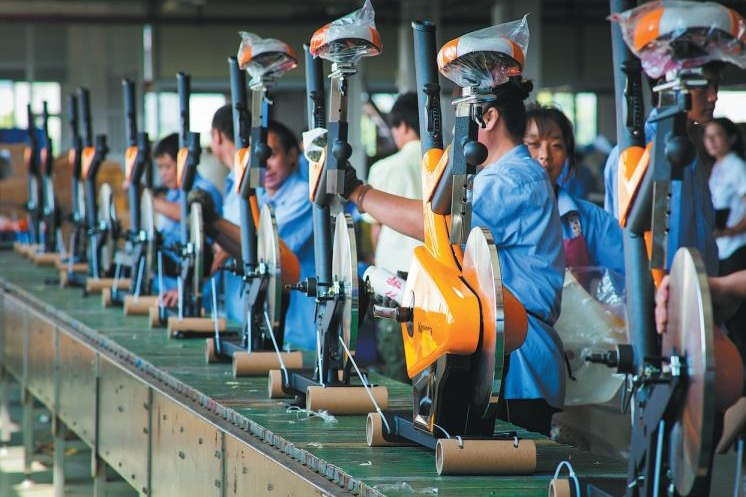Silkworm harvesting improves livelihoods in Egyptian village


BEHEIRA, Egypt — Nagaa Awni, located in Beheira governorate about 200 kilometers from the Egyptian capital of Cairo, used to be a village of mud-brick and straw homes, relying on external aid for food and blankets.
Now, thanks to about eight years of efforts by locals through various development projects, the village has transformed into a self-sufficient area. One notable project is the silkworm initiative started by Ragab Awad, a former fisherman in his 40s.
In 2016, Awad conceived the idea of leveraging Nagaa Awni's agricultural strengths to plant mulberry trees for feeding silkworms, producing silk and making carpets.
"We don't want to be a burden on society. We want to build our community and create career opportunities for young people to reduce unemployment and poverty rates," Awad said. "Give a man a fish and you feed him for a day. Teach him how to fish and you feed him for a lifetime."
Awad immediately purchased a box of 18,000 silkworm eggs and built a workshop on a piece of family land surrounded by mulberry trees. The workshop was divided into several rooms for nurturing worms, spreading cocoons into silk, and making carpets and accessories.
Awad initially lost money for the first two years of the project due to his lack of experience. "It was a learning process," he said. After watching online videos of Chinese farmers feeding and cleaning the worms, things began to improve. Now, Awad's workshop produces 720 kilograms of silk annually, significantly increasing his income.
From March to July this year, Awad raised 125,000 worms and donated a few hundred to local housewives. He later bought cocoons from these housewives at reasonable prices, encouraging them to find jobs.
Over the years, other villagers have joined the project at various stages. According to Awad, Nagaa Awni now has as many as 3,700 mulberry trees.
The story of Nagaa Awni's transformation has reached the Egyptian government, which, under the Decent Life Initiative launched by President Abdel Fattah al-Sisi in January 2019, has provided additional support to the village by building roads, a school and a clinic, and extending water, electricity and sewage lines.
Pointing to upgraded homes built with bricks and cement, Ismail Ibrahim, 32, feels proud of Nagaa Awni's positive changes over the years.
"We lived in extreme poverty for many years, and until recently it was difficult to afford enough food or pay for my children's education," Ibrahim said.
"Taking care of the worms is simple and easy, and the production is generous," Ibrahim said, adding that he is satisfied with his income nowadays.
Farah Abdelmalik, 19, was unable to continue her education due to her family's difficult living conditions. But now she can earn a healthy paycheck each month by training workers at Awad's workshop for silk knotting.
"Seeing the carpet as a final product is a moment of happiness for me," Abdelmalik said with a smile, adding that she hopes her products will one day be displayed at international exhibitions.
Xinhua




































